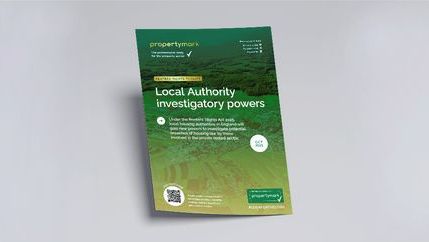
Watch a recording of the webinar →
Record-keeping is king
Contemporaneous notes on interactions with landlords and tenants will be invaluable, especially when an eviction notice is served, or a dispute arises. To speed up the processing of cases, Courts will demand robust paperwork and will be less willing to spend time arguing the toss between parties.
Embed best practices now by refreshing processes with staff and ensuring that your CRM and other systems have the right capabilities to ensure records join up. Speak to suppliers as soon as possible to see what plans they have for upgrading systems to meet new requirements.
Fixed terms will evaporate
Any tenancy agreements that run past the implementation date will lose their fixed term clause as this becomes unenforceable under the new rules. Agents should ascertain that their landlords and tenants, especially new clients, understand this so they can make informed decisions.
Make sure that rents charged on existing tenancies are in line with the market, and review standard tenancy agreements to ensure they are up-to-date and robust. Remember that despite the removal of Section 21 and the move to periodic tenancies, most of the existing tenancy agreement will still stand.
Movement is possible on rent in advance
Retaining the ability to take larger amounts of rent in advance is one of the key lobbying points for Propertymark after Housing Secretary Matthew Pennycook, MP, stated during the Second Reading debate that the Ministry for Housing, Communities and Local Government is open to hearing more evidence and reconsidering their position.
For now, agents dealing with the student market can continue business as usual with rent arrangements, and we strongly encourage them to use our Toolkit to contact their local MP to explain the impact changes will have on their business and the ability of students to secure a rental property.
Use Section 21 wisely
With a ban expected to come into force in the second half of 2025, notices served too late may fall foul of the changeover. If a landlord intends to rely on Section 21 to reclaim property, now is the time to think through a plan on how and when to serve notice to get the outcome required.
An open-minded approach to pets
If an agent or landlord can demonstrate the rationale for refusing a pet, and this is documented clearly, then the change under the Renters’ Rights Bill shouldn’t be a cause for concern.
Dealing with every applicant in the same consistent manner and focusing firmly on being reasonable is the best way to navigate the new rules.
Supporting property agents to adapt
The panel advised anyone unsure of what is being proposed by the legislation to attend one of Propertymark’s upcoming webinars, training courses or Regional Conferences to understand how the Renters’ Rights Bill might affect them.
We are delighted to offer an exclusive opportunity to learn from renowned industry expert and solicitor Tessa Shepperson who will lead a virtual training course — Preparing for the Renters’ Rights Bill. Tessa is a well-known author, trainer on PRS legal issues and a regulated solicitor who has specialised in residential landlord and tenant law for 25 years. In the session, she will guide attendees through areas where the Renters’ Rights Bill will affect landlords and agents and provide tips, insights and advice on preparing for this new regime.
Members can also sign up email updates on legislation by setting their preferences in their online account, visiting our online Knowledge Hub and FAQs, and joining our hugely active and supportive Facebook Group.
Get involved
We continue to make the case for evidence-based policies that support a flexible and fair private rented sector for all. Head of Policy and Campaigns, Timothy Douglas and Regional Executive, Valerie Bannister have confirmed meetings with Ministers to present evidence. To add your comments please email [email protected].
Writing to your MP as a resident and business owner or employee is a powerful way of ensuring your voice is heard. There is a huge demand for rented property across the country, so it is vital that legislative change is fit for purpose and does not cause landlords to leave the sector or deter new entrants from providing much needed homes to rent.
Act now with our campaign toolkit, complete with guidance, templates, and essential talking points for engaging with your local MP.








